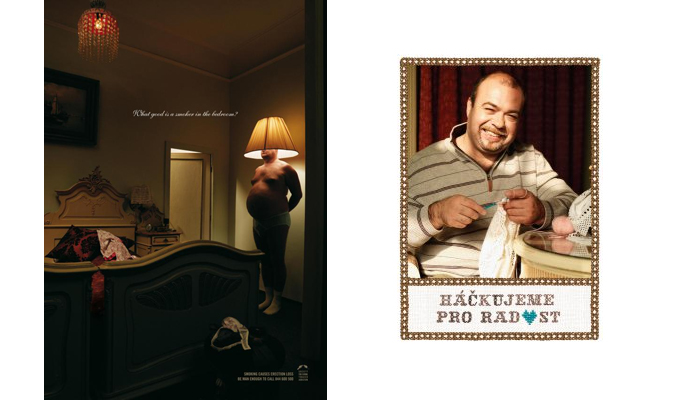“Throughout history, Man survives earthquakes, epidemics, the horrors of disease, and all the agonies of the soul, but for all time his most tormenting tragedy has been, is, and will be–the tragedy of the bedroom.” Leo Tolstoy
They say it happens to everyone. Everything is going well—the candles are lit, the mood is set, all systems are primed and ready to go, and then…nothing. The ship won’t sail. The flag won’t rise. The rocket ship won’t launch. There is confusion, which gives way to anger and disappointment, followed by a rash of explanations and excuses.
Known as the bane of many a man’s sex life, erectile dysfunction has been a problem since the Ancient Egyptians (who combatted the problem via an ointment composed of ground baby alligator hearts) and onwards until today, as prevalent and as shameful as ever. As famous British philosopher Alain de Botton has recently written in his book, How to Think More About Sex:
“The tragedies that afflict the human race are many, but seldom are they as intense as those that strike in a bedroom after a couple have repeatedly tried and failed to secure the erection of the male. At such moments, suicide may no longer seem a remote or unreasonable possibility.”
Or, as Botton later writes:
“It is generally easier to admit to having spent time in prison than to having suffered from impotence.”
On the eve of the 15th anniversary of Viagra, the blue-pilled panacea for penile problems, we decided to investigate one of the most taboo topics—impotence. How prevalent is ED in the ČR, and how are people here dealing with it, fifteen years after Viagra’s first appearance?

These advertisements were part of an anti-smoking campaign launched by the Society for the Treatment of Tobacco Dependence back in 2008, through the Leagas Delany Praha ad agency. According to the campaign, 20% of chronic smokers suffer from erectile dysfunction. In the advertisements, men are shown enjoying crocheting (with the subtitle, “The Joy of Crocheting”). In another advertisement, a man is shown being used as a lamp. The subtitle reads, “What good is a smoker in the bedroom?”
To answer these questions, I spoke with Doctor Petr Weiss, one of the head clinicians at the aptly-named Institute of Sexology (Sexuologický ústav).
This institution, located in Prague, is not only one of the premier sexological institutions in Europe, but in the whole world. The institute is famous as a pioneer in the field of sexological studies. One of the founders of the Sexological Institute, Kurt Freund, invented “phallometry”, which remains the only tried-and-true method for determining a man’s sexual predilections by examining the blood-flow to a man’s nether regions. And another initial member of the Institute, Dr. Vaclav Michal, was the first doctor to perform a surgical operation to cure impotence in the former Czechoslovakia in 1972.
The institute has also published some of the most comprehensive studies on impotence. In a recent 2008 study, they found that approximately 30% of men suffer from erectile dysfunction. And in 2002, a large study found that among middle-aged Czech men, between 45 to 65-years old, 54% suffer from erectile dysfunction, and that 26% suffer from serious erectile dysfunction—the type that demands immediate professional intervention.
Popular Opinion
As far as ED being a taboo topic in the Czech Republic, Dr. Weiss tells me that the situation has improved enormously. “It isn’t such a taboo as it was before,” he says. “The men are very well-informed. They know that if they have these problems, there is help to be found.”
The biggest problem these days is often not the patients, but the doctors. As Dr. Ondřej Trojan, a sexologist from the TH Clinic in Prague, told me, “It is very uncommon for a GP to ask questions about erectile dysfunction. The problem is that, when he doesn’t ask about it, the doctor omits a very good source of information because erectile dysfunction can be precursor to much larger problems—for example, cardiovascular problems or diabetes.”
Causes
A persistent issue with one’s privates might lead to bigger problems than simply a potentially annoyed/unsatisfied lover. Beyond fleeting feelings of shame or embarrassment, long-term erectile problems can not only kill your sex-life, but also your life, too.
Indeed, a common misconception is that the causes of long-term erectile dysfunction are totally mental. In fact, ED is not often caused by psychological problems, but by somatic or physical problems. If these problems are left untreated, they can be a precursor to a heart attack or a stroke.
However, should you be concerned if the engine won’t start once or twice? Not overly. Erectile dysfunction is only suspected after a longer period of malfunctions, longer than 1¬–2 months. At this point, Dr. Weiss says, it’s probably time to see a doctor.
Treatment
In the Czech Republic, about 60% of the market consists of the generic drugs Tadalafil (most often seen as Cialis), 35% Sildenafil (most often seen as Viagra), and 5% Vardenafil (most often seen as Levitra). As Dr. Weiss tells me, “We are the first generation of men in human history who have really sufficient and functional drugs for the therapy of erectile dysfunction. And these drugs can help 80% of those who suffer from erectile dysfunction.”
For the other 20%, other options are available, ranging from injections to a new special system called “shockwave therapy”, in which a low-intensity shockwave is applied to the penis, stimulating the growth of new cells and tissue.
As far as the price, Dr. Weiss tells me that these drugs are not prohibitively expensive. “Many men face the choice—if they want to pay for the drugs and continue their sexual life, or not.”
But what about other, non-prescription medications? Dr. Weiss and Dr. Trojan are skeptical. Both tell me that they are a “waste of money,” and that these are merely food supplements, but not medicine.
“These dietary supplements are good business,” says Dr. Trojan. “They make a couple of billion crowns every year but [they] work as well as a placebo.”
Indeed, the problem of taking dietary supplements can extend beyond their mere ineffectuality—they can also hurt a man’s self-esteem. “A lot of people come in to my office and are so relieved by the news that it is a placebo. They are losing time and losing money, and they are losing self-confidence.”
Resources
In the Czech Republic, it can be difficult to find a specialist who speaks fluent English. “There are maybe 100 sexologists in the country, and it can be hard to find a doctor who has a combination of both high quality and good language skills,” says Dr. Trojan.
However, there are places to go if you suffer (or believe you suffer) from erectile dysfunction, or any other sexually-related problems. Among the available resources for English-speakers are the Sexological Institute, as well as Dr. Trojan’s TH Clinic.
Related articles












 Reading time: 5 minutes
Reading time: 5 minutes 



 English
(Advanced)
English
(Advanced) Italian
(Proficient)
Italian
(Proficient)


















